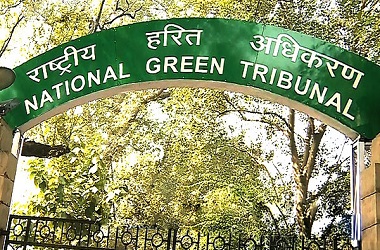Bhubaneswar: The National Green Tribunal (NGT) has ordered a joint inspection by a team of state and central government officials of alleged illegal railway siding in Jajpur district and sought an action taken report on the issue within one month.
It was alleged that a railway siding was operating in violation of the norms of the Consent to Operate and posing threat to the human habitation by exposing them with pollution emanating from the area.
“..we direct constitution of a committee comprising the Central Pollution Control Board, Odisha State Pollution Control Board, District Collector, Jajpur, who shall jointly inspect the railway siding in question, verify on the factual aspects in light of the allegations contained in the application and submit a report,” the written order of NGT said.
It also said that if there are reported violations of the norms, actions could be taken against them. “If the railway siding is in violation of the law, appropriate action may be taken in accordance with law against the railway siding. Let an action taken report in terms of the above directions be filed before the next date,” the NGT said.
The NGT has also issued a notice to the State Pollution Control Board, East Coast Railway, Jajpur Collector and sought their responses within one month against the allegations of the violation of environment laws in maintaining the railway siding. The petitioner had said that there was no provision of shed and greenbelt in the area. It was also alleged that there was no functional effluent treatment plant while other norms were thrown to the winds.The petition before the NGT said, “The present application challenges the inaction of State Pollution Control Board in allowing the respondent to run the Railway siding without complying with the conditions of consent to operate, causing pollution in the locality while handling the minerals.
Citing violations of green norms, the petitioner had said, “Hence the ongoing operation of railway siding is illegal and in violation of Environment Protection Act 1986, Air (Prevention and Control of Pollution) Act 1981 and Water (Prevention and Control of Pollution) Act 1974 and negates the spirit of Polluters Pay Principle, Precautionary Principle and Sustainable development.”
